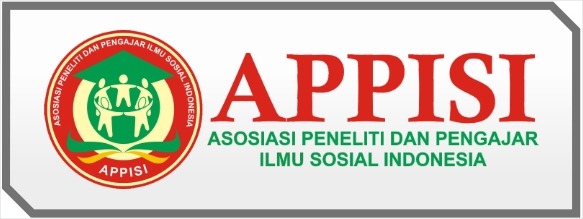ACHIEVEMENT MOTIVATION FOR PSYCHOLOGY STUDENTS IN PARTICIPATING IN NATIONAL LEVEL ISLAMIC COMPETITIONS
DOI:
https://doi.org/10.61994/jipbs.v1i3.13Keywords:
Achievement Motivation, Psychology Student, National competitionAbstract
The purpose of this study was to determine why psychology students are motivated to participate in national level competitions. This research uses Mixed Method with sequential explanatory design the subject of this research comes from N = 150 psychology students. Taking the subject of this study using purposive sampling technique. Data collection techniques using questionnaires and using the achievement motive scale. The results of this study indicate that why psychology students are motivated to participate in national level competitions because of the drive in each individual to achieve goals such as wanting to challenge themselves There are several factors that influence individuals, namely ideals, self-development, parents, economy, school and the results of research from a total of N = 150 respondents based on factors found that as many as N = 25 have high motivation, N = 108 have moderate motivation, and N = 17 have low motivation whose results are more likely to be in the low category. When viewed from the gender of psychology students, both men have a motivation of (31.4889) and women have a motivation of (31.4095) which results in almost the same achievement motivation.
References
Agustina, M. T., & Kurniawan, D. A. (2022). Motivasi Belajar Mahasiswa di Masa Pandemi Covid-19. JURNAL PSIKOLOGI PERSEPTUAL, Vol.7(No.1).
Azwar, S. (1995). Sikap Manusia Teori dan Pengukurannya (Edisi ke 2). Pustaka Pelajar.
Damanik, R. (2020). FAKTOR-FAKTOR YANG MEMPENGARUHI MOTIVASI BERPRESTASI MAHASISWA. Jurnal Serunai Ilmu Pendidikan, Vol. 6(No. 1), 29–30.
Djaali. (2008). Psikologi pendidikan. Bumi Aksara.
Efendi, A. L., Rosra, M., & Yusmansyah. (2014). HUBUNGAN ANTARA KONSEP DIRI DALAM BELAJAR DAN MOTIVASI BELAJAR DENGAN PRESTASI AKADEMIK MAHASISWA. Jurnal Bimbingan Konsling, Vol.03(No. 1).
Efferi, A. (2016). POLA PENGUATAN MOTIVASI DALAM MEMBENTUK MOTIF BERPRESTASI SISWA DI SMK WISUDHA KARYA KUDUS TAHUN 2015. Vol. 4(No. 1).
Emda, A. (2017). KEDUDUKAN MOTIVASI BELAJAR SISWA DALAM PEMBELAJARAN. Lantanida Journal, Vol. 5(No.2), 93–196.
Firmansyah Helmy. (2009). HUBUNGAN MOTIVASI BERPRESTASI SISWA DENGAN HASIL BELAJAR PENDIDIKAN JASMANI. Jurnal Pendidikan Jasmani Indonesia, Vol 6(No 1).
Hidayah, N., & Hermansyah, F. (2016). Hubungan antara Motivasi Belajar dan Kemampuan Membaca Pemahaman Siswa Kelas V Madrasah Ibtidaiyah Negeri 2 Bandar Lampung Tahun 2016/2017. Jurnal Pendidikan Dan Pembelajaran Dasar, Vol. 3(No. 2).
Lang, Jonas. W. B. (2006). ersi 10 item yang direvisi dari Skala Motif Pencapaian: Sifat psikometrik dalam sampel berbahasa Jerman. Jurnal Penilaian Psikologis Eropa, Vol 22(No 2).
Malini, G. A. N. D., & Fridari, I. G. A. D. (2013). Perbedaan motivasi belajar siswa ditinjau dari jenis kelamin dan urutan kelahiran di SMAN 1 Tabanan dengan sistem full day school. Jurnal Psikologi Udayana.
Prayitno, Elida. (1989). Motivasi dalam Belajar. Departemen Pendidikan dan Kebudayaan.
Rahman, S. (2021). PASCASARJANA UNIVERSITAS NEGERI GORONTALO PROSIDING SEMINAR NASIONAL PENDIDIKAN DASAR. 290.
Saragi, M. P. D., & Suryani, R. (2018). PERBEDAAN MOTIVASI BELAJAR SISWA BERJENIS KELAMIN PEREMPUAN DAN LAKI-LAKI SMK SWASTA BANDUNG. Jurnal Penelitian Bimbingan Dan KONSELING, Vol. 3(No.1).
Sidik, Z., & Sobandi, A. (2018). UPAYA MENINGKATKAN MOTIVASI BELAJAR SISWA MELALUI KEMAMPUAN KOMUNIKASI INTERPERSONAL GURU. Jurnal Pendidikan Manajemen Perkantoran, 3(2), 190–198. https://doi.org/10.17509/jpm.v3i2.11764
Syauqi, T. A. (2019). GAMBARAN MOTIVASI BERPRESTASI PEER GROUPRELIGIUS PADA MAHASISWA. Jurnal Psikologi Islami, Vol.5(No.1).
Tanadi, M., Hartini, S., & Putra, A. I. D. (2020). MOTIVASI BERPRESTASI DITINJAU DARI KONSEP DIRI PADA SISWA/SISWI METHODIST 5 MEDAN. Jurnal Ilmiah Psikologi, Vol. 22(No.1), 17–27.
Winkel. (1991). Bimbingan dan Konseling di Institusi Pendidikan. Grasindo.
Woolfolk, A. E. (1993). Educational Psychology (Edition-4). Prentice hall, Inc, Englewood Cliffs.
Downloads
Published
Issue
Section
License
Copyright (c) 2023 Putri Nabila, Belly Lestari, Masayu Alifah Saznabila, Fahirah Mayangsari, Fatima Az-zahra, Bella Nafisah, Reski Ramadani7, muhamad ilham fhatona, Fadhil Fadhlur Rohman, Sepriyan Pangestu, Winata ardiana, Filaila Dekautsar

This work is licensed under a Creative Commons Attribution-ShareAlike 4.0 International License.

Journal of Islamic Psychology and Behavioral Sciences by https://jurnal.dokicti.org/index.php/JIPBS/index
is licensed under a Creative Commons Attribution-ShareAlike 4.0 International Licensel














